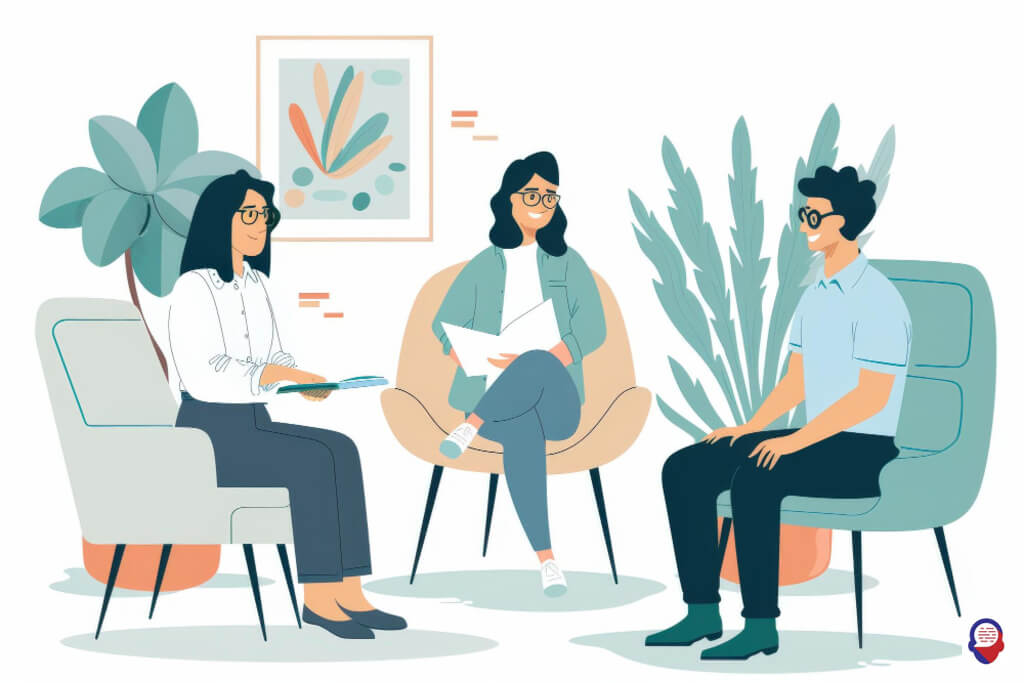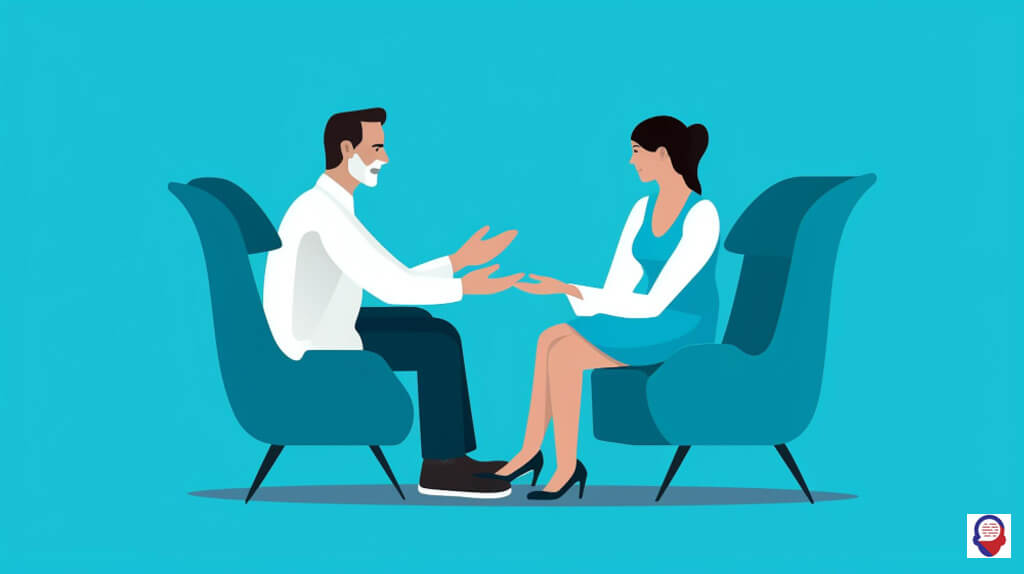Rewiring Your Brain: A Guide to Behavioral Addiction Therapy
Addiction can feel like a prison built within your own mind. It whispers, it demands, and it often feels like an inseparable part of who you are. But what if that weren’t true? What if the patterns of addiction, as deeply carved as they may seem, are not a life sentence but a set of learned behaviors, a wiring in the brain that can be carefully, thoughtfully, and permanently rewired? This is the fundamental promise of behavioral therapy, a powerful, evidence-based approach that doesn’t just treat the symptoms of addiction, but goes to the very root of the thoughts and actions that sustain it.
This isn’t about shaming or blaming. It’s about understanding. It’s about empowerment. Behavioral therapy provides a practical roadmap, a set of tools you can use to dismantle the old, destructive habits and build a new, healthier life in their place. It is the process of learning to become the architect of your own recovery, one thought, one choice, and one day at a time. This guide will walk you through what behavioral therapy is, how it works, and why it stands as one of the most effective cornerstones of lasting freedom from drug addiction.

What Is Behavioral Therapy for Addiction?
Behavioral therapy is a structured, goal-oriented form of psychotherapy that helps individuals identify and change the unhealthy thinking patterns and self-destructive behaviors that fuel their substance use. It operates on the core principle that behaviors are learned and, therefore, can be unlearned and replaced with more constructive alternatives.
Unlike therapies that may focus primarily on exploring the distant past, behavioral therapy is intensely practical and present-focused. It’s less about asking "why" you started using and more about understanding "what" triggers your use right now and "how" you can respond differently in the future. It’s an active, collaborative process between you and a therapist.
You are not a passive recipient of wisdom, you are an active participant in your own healing. The goal is to equip you with a tangible skillset for managing cravings, coping with stress, navigating difficult emotions, and preventing relapse. It is a journey of skill-building, not just talking, designed to give you real-world strategies for real-world challenges.

Why Is Changing Behavior So Crucial for Recovery?
Changing behavior is crucial because addiction fundamentally alters the brain’s reward and habit-formation circuits, creating powerful, automatic routines that drive substance use even when you desperately want to stop. These ingrained patterns can override your best intentions, making willpower alone an unreliable strategy for sustained recovery.
Think of it like a well-worn path in a forest. The first time you walked it, it was difficult. But with each repetition, the path became clearer, smoother, and easier to follow. Addiction creates similar neurological pathways in the brain. A trigger, like stress or a certain social setting, leads to a craving, which leads to using the substance, which provides a temporary reward of pleasure or relief. This loop, repeated over and over, becomes automatic.
Behavioral therapy acts as a guide to help you forge new paths. It works by interrupting that automatic cycle. It teaches you to recognize the triggers before they take hold, to manage the craving without acting on it, and to find healthier ways to achieve a sense of reward and relief. Without addressing these underlying behavioral mechanics, the old path remains the easiest one to take, especially during moments of weakness or distress.
This is why recovery is about more than just ceasing drug use. It is about the profound work of unlearning a deeply ingrained set of survival responses and learning a new, more adaptive way of living. It’s about creating so many new, healthy pathways that the old one eventually becomes overgrown and forgotten.

What Are the Main Types of Behavioral Therapy?
The most prominent and scientifically validated forms of behavioral therapy for addiction include Cognitive Behavioral Therapy (CBT), Dialectical Behavior Therapy (DBT), Contingency Management (CM), and Motivational Interviewing (MI). Each approach has a unique focus, but they all share the common goal of helping you change your relationship with substances by changing your actions and thoughts.
While these are distinct therapies, they are not always used in isolation. A skilled therapist will often integrate techniques from different models to create a personalized treatment plan that best suits your specific needs, challenges, and personality. Understanding what each one offers can empower you to engage more fully in your recovery journey.
These therapies represent the forefront of addiction treatment. They are backed by decades of research and have helped millions of people reclaim their lives from the grip of substance use disorders. They provide the structure, support, and skills necessary to turn the desire for change into a daily reality.

How Does Cognitive Behavioral Therapy (CBT) Work?
Cognitive Behavioral Therapy, or CBT, works by helping you identify, challenge, and change the inaccurate or negative thinking that leads to problematic feelings and behaviors, such as using drugs. It is founded on the idea that our thoughts, not external events, are what shape our feelings and actions.
The process of CBT involves becoming a detective of your own mind. You and your therapist will work together to uncover the automatic thought patterns connected to your substance use. For example, a stressful event (the trigger) might lead to the thought, "I can’t handle this feeling," which creates anxiety (the feeling), which in turn leads to drug use (the behavior) as a way to escape the anxiety.
CBT teaches you to slow down this process. You learn to catch that initial thought, "I can’t handle this," and examine it. Is it really true? Have you handled stress before? What are other, healthier ways you could cope? The therapist helps you develop a toolbox of alternative responses, such as relaxation techniques, problem-solving skills, or simply calling a supportive friend.
By systematically dismantling these cognitive distortions and practicing new coping skills, you gradually weaken the link between triggers and substance use. CBT is not about positive thinking, it is about realistic thinking. It empowers you to see situations more clearly and respond to them more effectively, building a foundation of resilience that is essential for long-term recovery.

What Makes Dialectical Behavior Therapy (DBT) Different?
Dialectical Behavior Therapy, or DBT, is a specialized form of CBT that is uniquely designed to help people who experience emotions with overwhelming intensity. While CBT focuses on changing thoughts, DBT adds a crucial layer of accepting them, teaching you skills to manage painful feelings and urges without judging yourself or resorting to destructive behaviors like substance use.
Originally developed to treat borderline personality disorder, DBT has proven incredibly effective for addiction, particularly when co-occurring with issues like depression, anxiety, or trauma. It addresses the reality that for many, substance use is a desperate attempt to escape or numb unbearable emotional pain. DBT provides a healthier alternative.
The therapy is built on four key skill modules. The first is Mindfulness, learning to observe your thoughts and feelings in the present moment without getting swept away by them. The second is Distress Tolerance, which provides crisis survival strategies for getting through intense emotional episodes without making things worse.
The third module is Emotion Regulation, which helps you understand your emotions and reduce your vulnerability to negative states. Finally, Interpersonal Effectiveness teaches you how to communicate your needs, set boundaries, and navigate conflict in relationships, reducing a major source of stress and potential triggers. DBT offers a comprehensive, compassionate framework for learning to live with emotional intensity in a way that is constructive, not destructive.

How Does Contingency Management (CM) Encourage Sobriety?
Contingency Management, or CM, encourages sobriety by using the straightforward, powerful principle of positive reinforcement. It provides tangible, immediate rewards for objective, verifiable evidence of positive behavior change, such as attending therapy sessions or providing a drug-free urine sample.
This approach directly counters the brain’s addiction-driven reward system. An addictive substance provides a quick, powerful, but ultimately destructive reward. CM offers a competing, healthy reward for abstinence. The focus is never on punishing substance use, but exclusively on reinforcing and celebrating progress toward recovery.
In a typical CM program, you might earn vouchers, points, or even entries into a prize draw for meeting specific, agreed-upon goals. These rewards might start small and increase in value the longer you maintain abstinence, creating a powerful incentive to stay on track. This consistent positive feedback helps to rewire the brain, strengthening the association between sobriety and positive outcomes.
While it may sound simple, CM is one of the most effective behavioral interventions for treating addiction, especially for substances like stimulants and cannabis. It provides a clear, motivating structure that can be particularly helpful in the early, most challenging stages of recovery, helping to build momentum and establish a solid foundation of abstinence.

What Is the Goal of Motivational Interviewing (MI)?
The primary goal of Motivational Interviewing, or MI, is to help you explore and resolve your own ambivalence about changing your substance use. It is a guiding, collaborative style of conversation designed to strengthen your personal motivation for and commitment to a specific goal by eliciting and exploring your own reasons for change.
Many people struggling with addiction feel two ways at once. Part of them wants to stop, recognizing the harm it causes, while another part is not ready or willing to give it up. MI honors this internal conflict without judgment. A therapist using MI will not lecture, confront, or tell you what to do. Instead, they act as a skilled and empathetic partner in your exploration.
The process involves the therapist asking open-ended questions, listening carefully to your responses, and reflecting your own words back to you. This helps you to hear your own desire for change more clearly. The therapist will highlight discrepancies between your current behavior and your stated values or goals, for instance, "On the one hand, you value your family, and on the other, you find your drinking is causing conflict at home. How do you see that?"
MI is not a technique for tricking people into changing. It is a respectful method of helping you find the motivation that already exists within you. It is often used in the early stages of treatment to help individuals move from a place of uncertainty to a state of readiness, empowering them to fully engage in the hard work of recovery.

How Do I Know Which Therapy Is Right for Me?
The best therapy for you is determined by a careful assessment of your unique circumstances, including the specific substance you use, your personal history, the presence of any co-occurring mental health conditions, and your individual needs and preferences. There is no single "best" therapy for everyone, the most effective treatment is one that is tailored to you.
The crucial first step is a comprehensive evaluation by a qualified addiction specialist or therapist. This assessment will help identify the core issues driving your substance use. For example, if your primary challenge is managing intense mood swings and self-harming urges, DBT might be recommended. If your main struggle is with automatic, negative thought patterns, CBT could be the most direct route.
In many cases, an integrated approach is most beneficial. You might begin with Motivational Interviewing to build commitment, then transition to CBT to learn practical coping skills, while also participating in a CM program to reinforce early abstinence. The specific combination is less important than the overall strategy being aligned with your goals.
Ultimately, the most critical factor in the success of any therapy is the therapeutic alliance, the trusting and collaborative relationship you build with your therapist. Feeling safe, understood, and respected is the foundation upon which all behavioral change is built. It’s essential to find a professional with whom you feel a genuine connection.

What Can I Expect in a Typical Therapy Session?
You can expect a typical therapy session to be a structured, confidential, and collaborative meeting focused on helping you achieve your recovery goals. It is a dedicated time and space where you can speak openly and honestly with a trained professional without fear of judgment.
Most sessions, whether individual or group, follow a predictable pattern. They often begin with a check-in, where you’ll discuss your week, including any successes, challenges, or cravings you experienced. If you were given a "homework" assignment, like tracking your thoughts or practicing a new skill, you would review it with your therapist.
The main part of the session will focus on a specific topic or skill. This could involve learning a new concept, like how to identify cognitive distortions, or practicing a new technique, such as a distress tolerance exercise. The therapist acts as a teacher and a coach, guiding you through the material and helping you apply it to your own life.
The session usually concludes by summarizing what you’ve learned and setting a small, achievable goal for the upcoming week. This structure ensures that each meeting is productive and builds upon the last. It is an active, engaging process designed to move you steadily forward on your path to recovery.

How Does Behavioral Therapy Support Long-Term Sobriety?
Behavioral therapy supports long-term sobriety by going beyond just stopping substance use and instead equipping you with a durable, lifelong toolkit for building a meaningful and resilient life in recovery. The skills you learn are not temporary fixes, they are permanent assets that empower you to navigate life’s challenges without needing to resort to old, destructive habits.
One of the most vital components is relapse prevention. Therapy helps you identify your personal high-risk situations, the people, places, feelings, and events that could trigger a desire to use. You then work with your therapist to create a concrete, proactive plan for how to manage each of these situations successfully. This turns potential crises into opportunities to practice your new skills.
Furthermore, the benefits of behavioral therapy extend far beyond addiction. The skills you learn, such as effective communication, stress management, emotional regulation, and problem-solving, improve every aspect of your life. They can help you repair relationships, perform better at work, and find a greater sense of overall wellbeing.
When your life becomes more manageable and fulfilling, the perceived need to escape through substances diminishes dramatically. Behavioral therapy doesn’t just take something away (the drug), it adds something invaluable in its place: the confidence and competence to handle whatever life throws at you. This is the true foundation of lasting sobriety.
Frequently Asked Questions

How long does behavioral therapy for addiction take? The duration of behavioral therapy varies significantly from person to person, but a typical course of a specific therapy like CBT often involves 12 to 20 weekly sessions. However, recovery is a long-term process, and many people benefit from ongoing support, check-in sessions, or group therapy long after the initial intensive phase is complete.

Is therapy enough, or do I need medication too? For many individuals, a combination of behavioral therapy and Medication-Assisted Treatment (MAT) is the most effective path to recovery. This is particularly true for addiction to opioids or alcohol, where medications can help manage withdrawal symptoms and reduce cravings, allowing you to more fully engage in and benefit from the therapeutic process. A medical professional can help determine if MAT is right for you.

Can I do this online? Yes, absolutely. Many forms of behavioral therapy, including CBT and MI, have been successfully adapted for online or telehealth delivery. Online therapy offers a high degree of convenience, accessibility, and privacy, making it an excellent option for those with transportation issues, busy schedules, or who simply feel more comfortable in their own home.

What if I relapse while in therapy? Relapsing during the recovery process is common and should not be viewed as a failure, but as a learning opportunity. If a relapse occurs, it is crucial to be honest with your therapist. It provides valuable information about what strategies aren’t working, what triggers are most powerful, and where your recovery plan needs to be strengthened. Your therapist will help you analyze the situation without judgment and get back on track.
The journey of rewiring your brain and reclaiming your life from addiction is a courageous one, and you don’t have to walk it alone. The decision to seek help is the first, most powerful step toward building a new future.
At Counselling-uk, we provide a safe, confidential, and professional place for you to explore these challenges. Our qualified therapists are here to listen, to understand, and to help you build the skills and resilience you need for lasting recovery. We are committed to supporting you through all of life’s challenges, with compassion and expertise.
Reach out today to begin your conversation. We are here to listen and support you, every step of the way.



